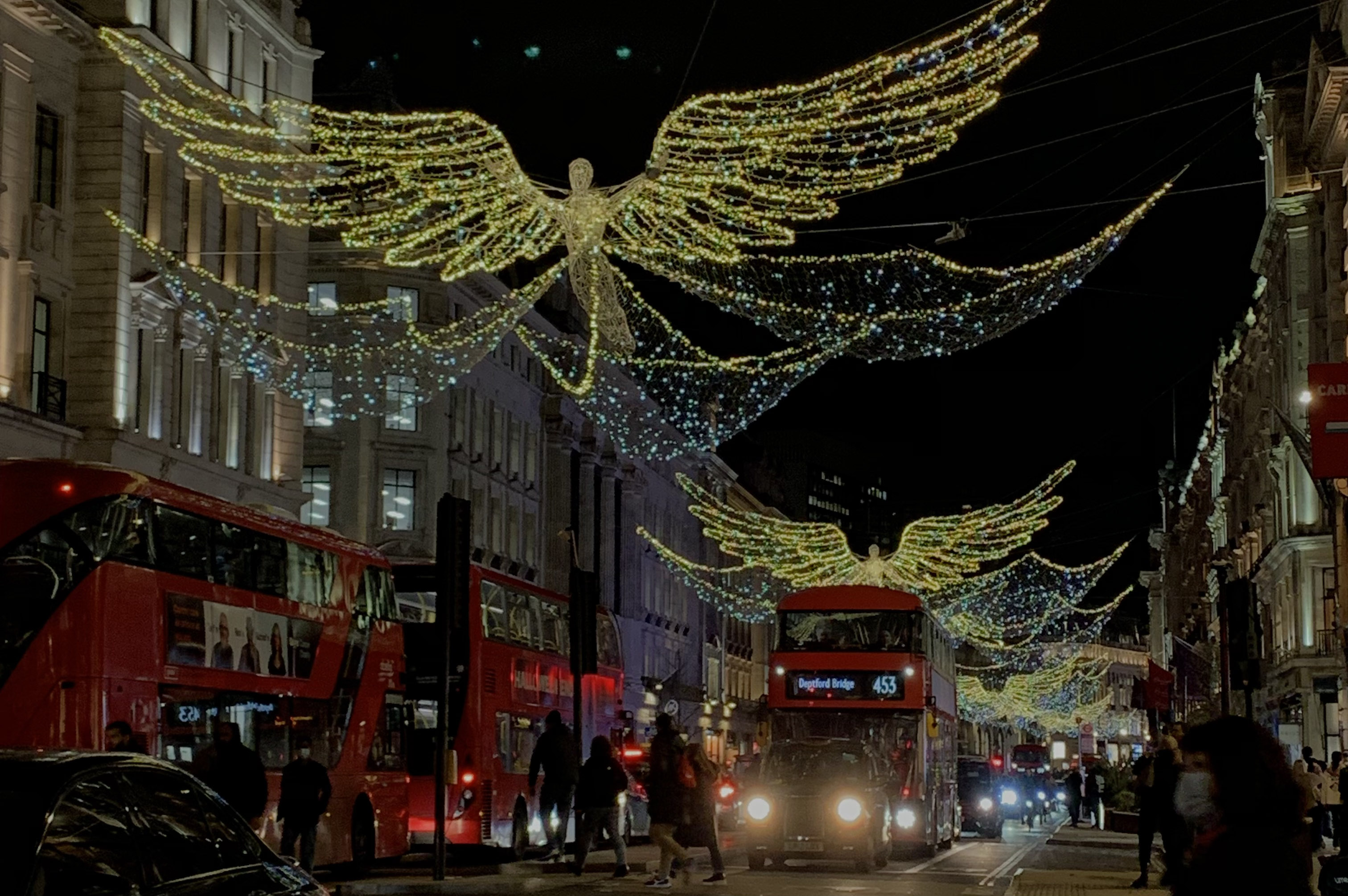

(Photo Credit: Martina Gramazio)
Different schedules and bulb materials have been established to face the energy crisis in London.
With less than forty days for Christmas, Christmas lights in London are switched on, but this doesn’t mean the energy crisis won’t affect the celebration.
Christmas lights in many London streets won’t be switched on 24/7 this year.
The New West End Company, which is responsible for organizing Christmas lights on Oxford Street, Regent Street and Bond Street, suggested that with these measures energy consumption will be cut by two-thirds this year.
The Campaigns and Events Manager at New West End Company Hadas Kulcsar said:
“In the current climate, it is important that we reduce our energy consumption and help to promote a more sustainable Christmas in line with our ambitions to make Oxford Street a leading sustainable district”.
Research from the West End Company estimated that £1.55 billion would be spent over the eight-week Christmas trading period. That is 24 percent higher than in 2021, but still 28 percent lower than in 2019.
Oxford Street’s Christmas stars will shine from 3-11 pm this season. Covent Garden‘s Christmas lights will also be time-limited, from 11am until midnight. Regent Street‘s “Spirit of Christmas” will be illuminated from 2pm to midnight for a more sustainable display.
Furthermore, many Christmas lights this year will be sustainable.
The iconic 5,000 Oxford Street’s stars are LED bulbs, made from recycled polymer, which is 75 percent more energy efficient. The 300.000 led bulbs will also be reused and repurposed for future celebrations.
As long as to save energy, these two measures have also been taken to limit the impact on London Council’s purse and the carbon footprint.
To this end, Westminster City Council and the Westminster Property Association launched Westminster’s first Sustainable City Charter last November 15.
The Cabinet Member for Climate Action Councilor Matt Noble said:
“Our city is facing an unparalleled crisis as we reach a critical point in addressing the climate emergency and we have made a commitment to becoming a net zero carbon city by 2040”.
Christmas celebrations and their impact on the energy crisis has been at the center of debate for over a month, gathering a set of different opinions.
In fact, while many people have enthusiastically welcomed Christmas lights, many others have criticised them.
On the one hand, the need to celebrate is at a peak.
For many, this is the first Christmas without restrictions post-Covid and people want to take this opportunity to live again the magic atmosphere only Christmas lights can give.
Also the Mayor of London Sadiq Khan tweeted: “Fantastic evening in the West End tonight for the world’s biggest ever Christmas lights switch on. London is such a magical place this time of year”.
Fantastic evening in the West End tonight for the world’s biggest ever Christmas lights switch on.
London is such a magical place this time of year. Let’s make the most of all the amazing things our city has to offer this Christmas, and #LetsDoLondon ? pic.twitter.com/E2qwc1DOpf
— Mayor of London, Sadiq Khan (@MayorofLondon) November 12, 2021
But with the energy crisis and the inflation the UK has to face, to justify the high cost of Christmas celebration is becoming increasingly difficult.
This is the reason why, next to enthusiastic users, many people on Twitter have expressed their concern.
One wrote “I’d rather not have any Christmas lights and decorations on the London streets and have lowered bills instead”.
I'd rather not have any Christmas lights and decorations on the London streets and have lowered bills instead. The whole city is lit up like there's no energy crisis at all. Disappointed. Where are the priorities ???♀️ it's so simple… And would help so many households.
— Evelina (@evelyn_haze) November 9, 2022
Another user tweeted: “It’s shocking that a country that supplies electricity will be cutting its usage for another to light up. I say the cities should abandon Christmas lights to save power”.
It's shocking that a country that supplies electricity will be cutting its usage for another to light up. I say the cities should abandon Christmas lights to save power. London first. Good morning Bear ?
— Porridge Drawers ??????? (@AwTroon) November 8, 2022
In any case, London is not the first city (neither will it be the last) forced to take these types of actions.
The iconic Eiffel Tower in Paris will be switched off one hour earlier this year, while in Milan the mayor has set up a special energy-saving plan. Amidst the other measures, the plan establishes that all Christmas lights will be switched off one hour earlier this year. It also strongly discourages Christmas trees in squares.
Similar measures will also be taken in Germany, Ireland and in many other British cities.
Beyond all of this, one thing is still certain: this Christmas will be significantly different from all others before it (yet again).